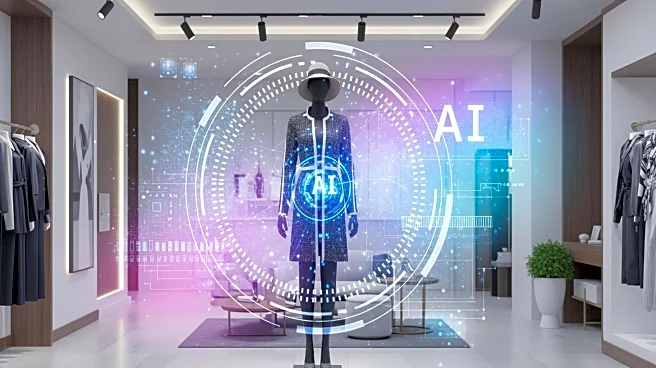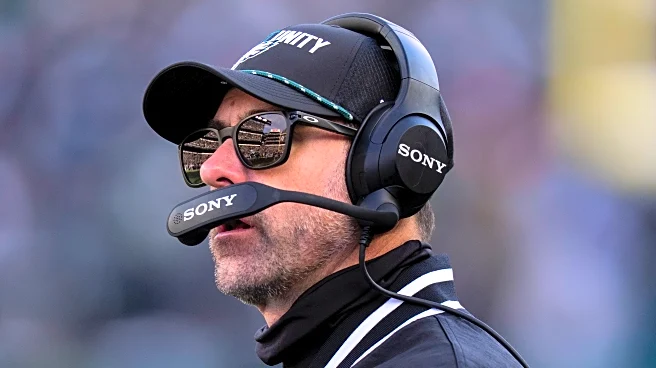What's Happening?
On Wednesday, leaders from various sectors gathered at New York's One World Trade Center for the TIME100 Impact Dinner, focusing on the role of AI in shaping the future of fashion. The event featured a panel
discussion moderated by TIME's editor-in-chief Sam Jacobs, with panelists including David Lauren from Ralph Lauren, Shelley Bransten from Microsoft, and artist Sougwen Chung. Ralph Lauren, in partnership with Microsoft, recently launched 'Ask Ralph,' an AI-powered tool within its mobile app that offers personalized shopping experiences by generating outfit suggestions based on user prompts. This development is part of a broader trend where businesses are leveraging AI to provide customized consumer experiences.
Why It's Important?
The integration of AI in fashion represents a significant shift in how consumers interact with brands, offering personalized experiences that enhance customer engagement. This trend could redefine retail strategies, emphasizing the importance of technology in creating immersive brand experiences. For companies like Ralph Lauren, AI tools like 'Ask Ralph' not only streamline the shopping process but also deepen consumer connection by providing tailored stylistic inspiration. As AI continues to evolve, it may drive innovation across the fashion industry, influencing how brands approach customer service and product presentation.
What's Next?
Ralph Lauren plans to further develop its AI services, potentially expanding the capabilities of 'Ask Ralph' to offer even more personalized experiences. As AI technology advances, other fashion brands may adopt similar tools, leading to increased competition in the industry. Stakeholders, including retailers and tech companies, will likely explore new partnerships to enhance their digital offerings. The ongoing dialogue between AI developers and fashion brands could result in innovative solutions that redefine consumer interactions and brand loyalty.
Beyond the Headlines
The use of AI in fashion raises questions about the balance between technology and human creativity. While AI can enhance consumer experiences, it also prompts discussions about the ethical implications of relying on technology for creative processes. As AI systems become more prevalent, the industry must consider how to maintain the authenticity and emotional connection that traditional shopping experiences offer. This development could lead to a broader conversation about the role of technology in creative industries and its impact on cultural expression.












